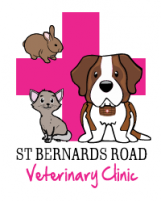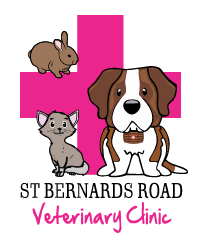Caring for your Pets
General Petcare Articles
Arthritis
Arthritis - What is it?
Arthritis is a disease process that occurs within joints, in particular when the cartilage wears away and the production of joint fluid is reduced. As a result affected joints have less cushioning and lubrication, a decreased range of movement and are a source of ongoing inflammation and pain. Arthritis is very common in older dogs and cats, but is also seen in younger animals as a result of injury or other underlying diseases.
What are the symptoms of Arthritis?
The most common symptom of arthritis is stiffness in the joints causing your pet to walk with a stiff looking walk or run and often start having some difficulty getting up after sitting or lying down. Your pet may also have difficulty climbing stairs or jumping. If one leg is worse than the others then an obvious limp may develop. The symptoms are often worse in the mornings or after a long walk.
How do we diagnose arthritis?
We start with a full physical examination of your pet. Depending on the results of the examination we may recommend x-rays to confirm the diagnosis of arthritis. X-rays are particularly useful if an underlying cause such as Cruciate Ligament Disease or Hip Dysplasia is suspected.
Importance of early intervention
Early intervention is the key to successful management of arthritis. If treatment is started as soon as a problem is suspected, the progression of arthritis is markedly slowed, ultimately leading to a longer life expectancy. Quality of life is also improved, as a reduction in pain allows mobility and muscle mass to be maintained.
Weight control
Maintaining your pet within a healthy weight range reduces the load arthritic joints need to bear. This can significantly reduce or eliminate the amount of medication needed to control the arthritis; which is safer for your pet in the long run and may also save you some money. Weight can be reduced by cutting out snacks, switching to a weight control diet or cutting back on the amount of food fed at each main meal. Remember also that bones contain a lot of calories, so if you feed a bone (raw of course!), then significantly reduce the main meal for the day. Regularly weighing your dog or cat also helps with long term weight management, so feel free to visit the clinic at any time to use the scales.
Exercise
Regular and moderate exercise is actually good for arthritic joints. In addition to assisting with weight management, exercise helps to stimulate the production of joint fluid, which provides essential nutrition for overall joint health. Twice daily walks over level ground is ideal, but try to avoid stairs, jumping, and vigorous exercise such as running or throwing balls. Swimming is an excellent form of exercise as it avoids high impact on joints. The exact exercise plan for your pet will depend on their current condition, stage of disease and if any surgery has been recently performed.
Treatment
There are a range of medications and supplements available for the treatment of osteoarthritis in both dogs and cats. If you believe that your pet has osteoarthritis please contact us for more information.


Home | Our Team | Caring for your Pets | Pet Products |
| FAQ | Our Patients | Latest News | Our Services
Site design | That's Graphic


